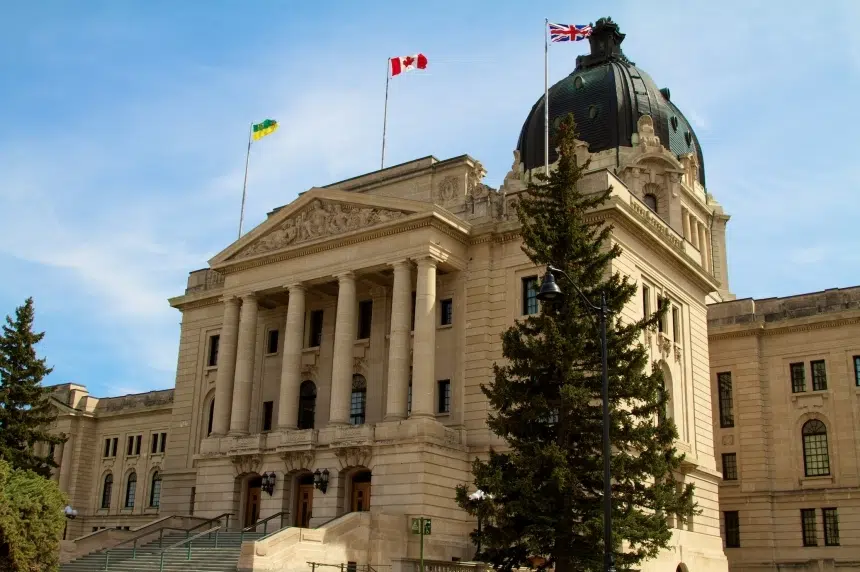Saskatchewan’s budget is still on track, but the province is relying heavily on a contingency fund to achieve that.
According to the provincial government’s first-quarter update, there is no change in the bottom-line forecast from the budget in March, estimated to be a deficit of $684.7 million.
“The Saskatchewan economy is performing well so far, and for the first time in two years is projected to post positive growth,” said Finance Minister Kevin Doherty. “We have more to accomplish, but at first quarter we are meeting our fiscal challenge by controlling spending and shifting away from over-reliance on volatile resource revenue.”
The previous deficit sat at $1.3 billion. As a result, the minister’s spring budget contained an increase to the PST, as well as expansion of the tax to things like children’s clothes, restaurant meals and insurance premiums — the latter being implemented at the beginning of August. The budget also included the end of funding for the Saskatchewan Transportation Company.
In Friday’s update, the government expects revenue to increase by $42 million from the budget. A portion of that is related to higher-than-expected revenues from both the PST and fuel tax. However, total expenses are set to increase by roughly $82 million.
The province said it’s used about $40 million from the budget’s $300 million contingency to offset expense pressures. Another $125 million of the contingency has been used to offset compensation savings that the province said can’t be achieved this year, due to negotiations.
Doherty is optimistic as talks continue.
“There’s going to be movement at the negotiating table with respect to our employer groups and employee groups in negotiating these compensation settlements,” he told reporters.
The Sask. Party has $135 million left in its ‘just in case’ fund, used as a cushion should any other unforeseen events arise, such as a natural disaster.
“We built the contingency in precisely for these reasons,” added Doherty.
Oil prices were originally forecast to be $56 a barrel, but they’ve since been revised in the update at $49 a barrel. Lower oil prices were offset by higher potash prices, along with an increase in the number of new wells drilled and a related jump in oil production.
“When there’s more production, there’s obviously people working in the oil patch. That’s good for income tax, that’s good for sales tax, that’s good for fuel tax,” he stated.
Despite rallies and protests from many residents, who are unhappy with the tax increases and cut losses in the budget, Doherty stands behind where the province’s books are and how they got there.
“Anytime you have something that’s coming to you from government and it stops, it’s upsetting to you. I understand that. Anytime you change taxes that you are asking people to pay more money for things, it’s upsetting and I understand that,” explained Doherty.
“The reality is that we had a plan put in place here for three years to get back to balance. It is critical to get back to a balanced budget.”
‘Ridiculous’ says opposition interim leader
NDP interim leader Nicole Sarauer responded with doubt that the public would see a balanced budget in the future from the Wall government.
“It’s pretty ridiculous for the minister to say that they’re on track. They’ve used up half of their contingency fund in the first quarter alone. I don’t think you have to be an accountant to realize that that’s not really on track,” she said.
Sarauer added that many within the SaskParty seem to be distracted.
“It shows a lack of leadership. It shows a SaskParty that’s more worried about their own leadership campaigns then in actually serving Saskatchewan people and it’s clear that they’re not serving Saskatchewan people anymore.”
CTF: spending needs to be trimmed
Todd MacKay with the Canadian Taxpayers Federation said the province has to do better.
“We’ve got to trim spending. We’re not seeing that happening, and when you look at the cornerstone promise in the budget, which was to trim compensate costs by three-and-a-half per cent. That hasn’t happened yet,” he said.
MacKay said the good news is the deficit isn’t getting bigger.
He expressed concerns about the contingency fund getting burned through even more in the future, rhetorically asking: “How many times in the last few years has something not gone wrong?”
The CTF has long called for the province to establish a heritage fund, more of a long-term savings account than a yearly contingency fund as the province has already established.











